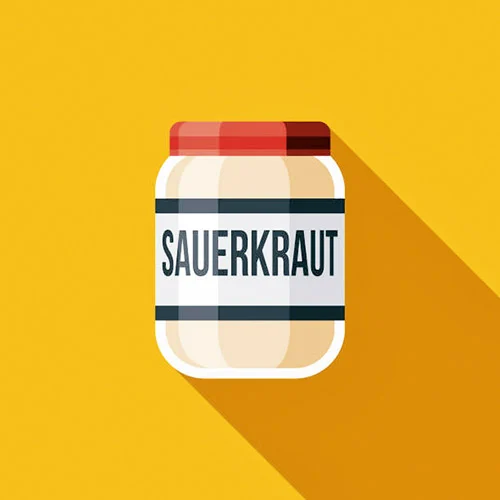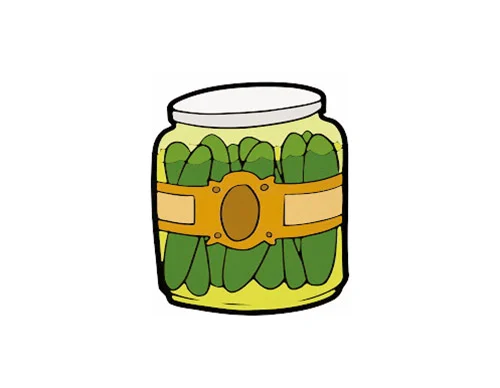
The 411 of fermented foods and probiotics.
As you push your shopping cart down the refrigerated aisle (the one where I’m always wishing I had my sweatshirt), you can see that the aisle is expanding with products touting their probiotic content. “Probiotics” has become the hot new buzzword, replacing the once-ubiquitous and popular catchphrases “fat-free” and “cholesterol-free.”
Probiotics, in general, are live bacteria and/or yeasts that live in your body and impart benefits to your health and well-being. There is a constant battle between “good” versus “bad” bacteria that hangs in the balance in the body. The goal is to maintain that balance and not let those evil ones override your system and get you sick. The good bacteria help get rid of the bad guys and help return the body back to equilibrium. They also help promote healthy digestion, create vitamins, like Vitamin K, and act like a border security system to ensure that bad bacteria don’t sneak out the gut and enter the bloodstream.
Burgeoning research shows hope and promise that these friendly critters help treat and prevent certain conditions, like diarrhea, irritable bowel syndrome (IBS), irritable bowel disease (IBD), which include Crohn’s disease and ischemic colitis, H. Pylori infections (which cause gastric ulcers), urinary tract infections (UTIs), bladder cancer recurrences, Clostridium difficile (C. diff) infections, and eczema in children. An increasing number of studies show a link between gut health and mental health. A meta-analysis (review) of 15 studies found that those supplementing with Bifidobacterium and Lactobacillus for one to two months showed improvement in their memory, depression, anxiety, and obsessive compulsive disorder (OCD) symptoms.

The most common strains of probiotics you can find in the grocery stores are Lactobacillus and Bifidobacterium. Fermented foods (aka foods that bacteria helped create) that contain these wonderful probiotics include yogurt, pickles, sauerkraut, kimchi, kefir, kombucha, tempeh and sourdough bread, just to name a few.
You may also want to take a probiotic supplement. However, due to the fact that it’s not a drug, it doesn’t have to be regulated by the Food and Drug Administration (FDA)—caveat emptor! Speak to your doctor before starting any probiotic supplement. They are generally recognized as safe, but you may experience some gastrointestinal (GI) symptoms, like bloating, flatulence, upset stomach and diarrhea. It’s also important to note that some probiotic supplements may be sensitive to heat, light, oxygen and humidity, and may die if exposed to such conditions. The refrigerator or a dark cabinet may be the best locations to store them, but just be sure to read the instructions on the bottle.
Probiotics: What was once thought of as a far-fetched and esoteric concept is now part of the daily jargon and is a very accessible health product for the general consumer. Good bacteria have always been around and is here to stay until the end of time, so join the probiotic bandwagon to optimize your gut health and overall well-being!
By Melissa Papir, MS, RD













